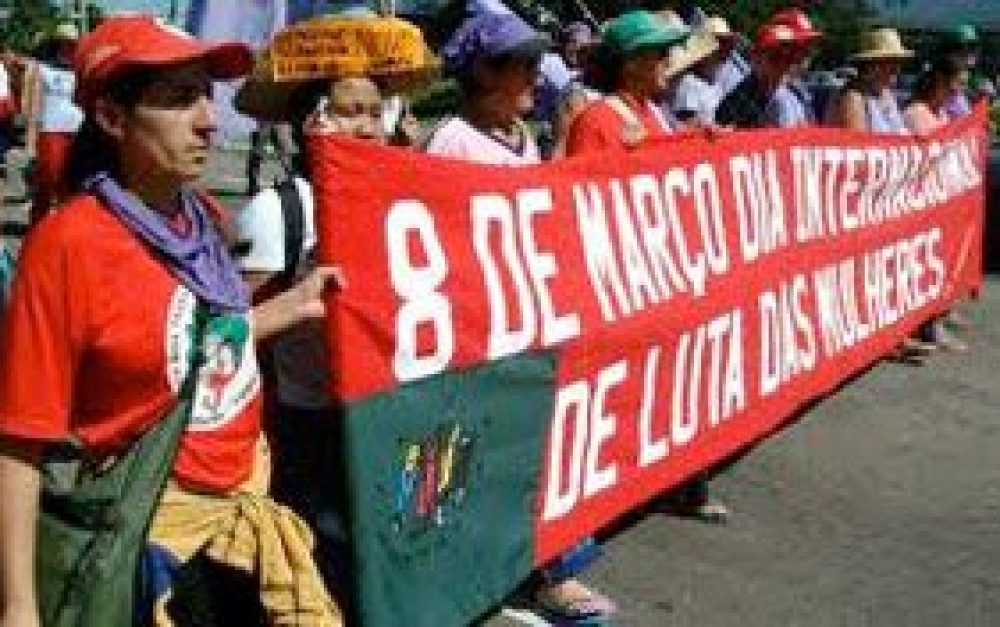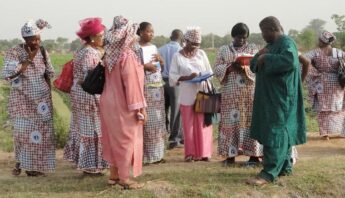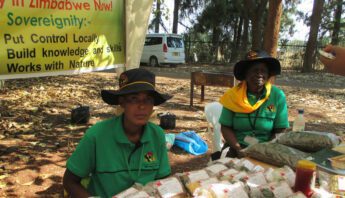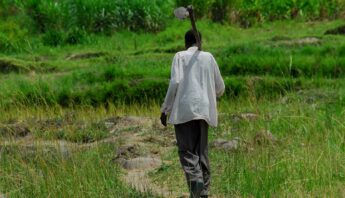March 8 was the 100th anniversay of international Women's Day. To mark the occasion, more than 7,000 women farmers in Brazil demonstrated against industrial agriculture. Most farmers around the world are women, and women (and children) bear disproportionately high costs of this system of farming — particularly pesticide health impacts.
Protesters were members of the international peasant movement La Via Campesina. Their primary demands were more equitable distribution of land, a shift to sustainable ecological agriculture, and a re-direction of government support toward small-scale and peasant farmers, and away from large agribusiness subsidies.
Via Campesina is the latest face of a strong, multi-generational global peasant movement echoing these concerns and demanding that their and their communities’ health, economic and ecological wellbeing not be sacrificed at the altar of agribusiness greed. Protesters organized across several Brazilian states last week to highlight the costs of industrial agriculture in their country, including:
- Brazil is one of the top consumers of pesticides in the world, many of them highly hazardous pesticides often banned in countries of the North.
- The high use of particularly toxic pesticides in Brazilian agriculture has irreversible health consequences for farmers, especially women farmers. And science shows that women, along with children, are much more vulnerable to the health impacts of these pesticides.
- Access to land, capital and other resources are disproportionately provided to large scale industrial operations in Brazil — as in much of the global South — resulting in dispossessed and impoverished small-scale farmers.
“Despite industry and some experts' arguments, experience shows that the safe use of pesticides is no more than a myth. One way or another they will harm environment, rural workers and consumers. The agribusiness model has lots of hidden costs” says Gabriel Fernandes of Agricultura Familiar e Agroecologia, a close PAN ally in Brazil.
The industrial agricultural model "is driven by an alliance between large landowners and transnational corporations that gain control of the land and invest in monoculture plantations, such as sugarcane and eucalyptus…. The system produces primarily for export, while it degrades the environment and land ownership becomes ever more concentrated," said Amanda Matheus, a national coordinator for the Landless Rural Workers Movement.
Learn More >> A 2010 PAN report, Communities in Peril, highlighted the concerns of farmers like the women who were protesting in Brazil this week. PAN's interviews with over 2,000 farmers around the developing world showed that hazardous pesticides are commonly used in unsafe situations, with a very high burden of pesticide-related disease and disability borne by women in particular.







